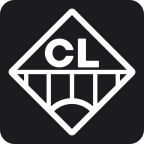An international team of researchers from Leibniz University of Hanover in Germany, the University of Twente in the Netherlands, and QuiX Quantum, a Dutch light-quantum technology startup, recently announced the development of an entangled quantum light source that is fully integrated on a chip.
The entire quantum light source is mounted on a chip smaller than a euro coin -- a feat they say is the first of its kind in the world. The paper was published in the journal Nature Photonics.

(Photo credit: Leibniz University Hannover)
The size of the light source has been reduced by more than 1000 times
The researchers reduced the size of the light source by more than 1,000 times by using a new "hybrid technology" that combines a laser made of indium phosphide and a filter made of silicon nitride on a single chip. The new light source is so efficient and stable that it could be used to power quantum computers or quantum Internet.
Professor Michael Kues, Director of the Photonics Institute at Leibniz University Hannover and a member of the board of the Cluster of Excellence PhoenixD Industrial Cluster, said: "Our breakthrough allows us to reduce the size of the light source by more than 1,000 times, resulting in repeatability, long-term stability, scalability and potential mass production. All of these properties are necessary for real-world applications such as quantum processors."
Quantum light sources produce light quanta, which can be used as qubits (the building blocks of quantum computers and the quantum Internet). Today, photonics on a chip is an advanced platform for dealing with quantum states of light because it is compact, stable and can be arranged with a range of elements on a single chip.
In this device, light is directed onto a chip through extremely compact structures that can be used to build photonic quantum computing systems. Today, these are accessible through the cloud. Because they are scalable, they can solve tasks that conventional computers cannot do because of their limited computing power -- an Advantage known as "Quantum Advantage".
New chip design
"Until now, quantum light sources have required external, off-chip and bulky laser systems, which limited their use in the field," said Hatam Mahmudlu, a PhD student at Kues. However, we overcome these challenges through a novel chip design and the use of different integration platforms."
Their new development is an electrically excited, laser-integrated photon quantum light source that can be fitted perfectly onto a chip and emits frequency-entangled qubit states.
"Qubits are very susceptible to noise. The chip has to be driven by a laser field and is completely noise free, requiring an on-chip filter, "said Dr. Raktim Haldar, a researcher in the Michael Kues group." Previously, integrating a laser, filter, and cavity on the same chip was a major challenge, as there was no unique material that could effectively build these different components."
Key to this series of operations is hybrid technology, which combines a laser made of indium phosphide, a filter and a cavity made of silicon nitride and integrates them into a single chip. On the chip, in a spontaneous nonlinear process, the laser field produces two photons. Each photon spans a series of colors simultaneously, known as a "superposition," where the colors of two photons are correlated, meaning the photons are entangled and can store quantum information. Michael Kues points out that they thus achieve the superior efficiency and quality of state required for quantum computer or quantum Internet applications.
Unlike current versions that use ultracold qubits in cryogenic systems, quantum advantage can be achieved using such photonic systems on chips, even at room temperature. The scientists also hope their findings will help reduce the cost of producing apps.
Source: OFweek








